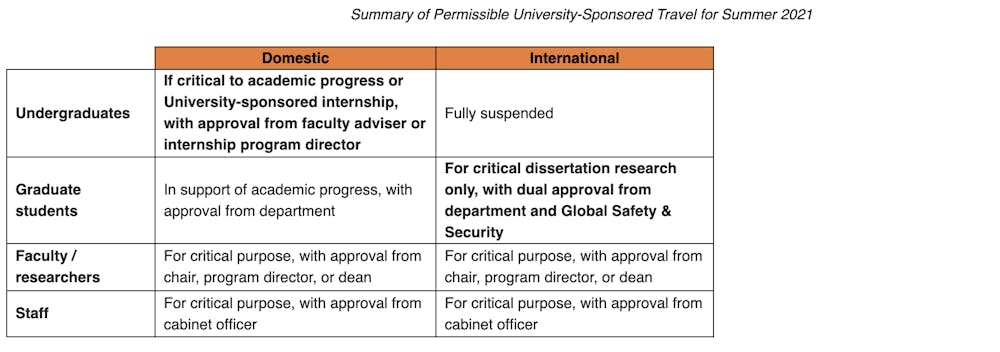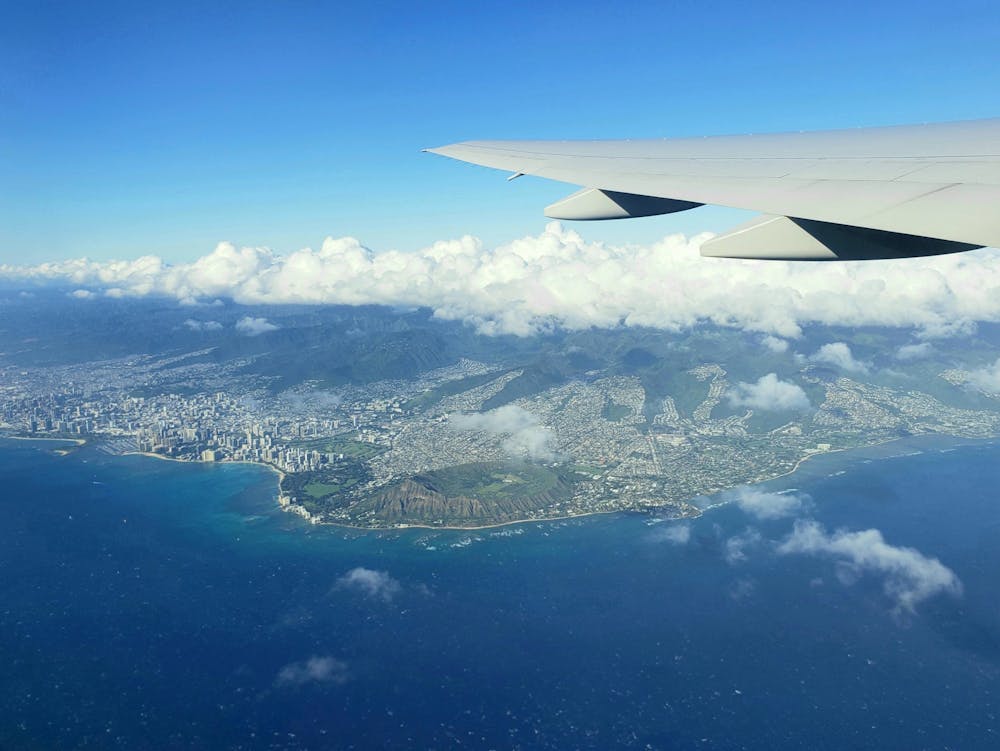University-sponsored travel will remain suspended through the summer, according to newly-revised guidelines announced today.
In a Mar. 18 memo emailed to all Princeton students, Associate Provost for International Affairs and Operations Aly Kassam-Remtulla explained that the majority of current restrictions on University-sponsored travel will remain in place through the summer. However, the list of exceptions to the ban on travel will also expand slightly when the new policies take effect on May 24.
A variety of factors were involved in the decision to keep the majority of restrictions in place, Kassam-Remtulla explained in his email.
“The logistics of travel, especially internationally, remain complex and subject to sudden, unanticipated disruption. Quarantines and testing requirements, as well as frequently shifting lockdown rules, make short-duration journeys all but impossible,” he wrote.
“We continue to face potentially insurmountable constraints on support for our travelers should they experience an emergency, given both lingering national travel bans and the ongoing decrease in airline capacity and routes,” he added. “Finally, we must also consider that the U.S. Centers for Disease Control and Prevention and Department of State, in addition to their counterparts in many other countries, still strongly caution against travel wherever possible.”

A summary of permissible University-Sponsored Travel for Summer 2021 included in the memo
Domestic and international University-sponsored travel for faculty and researchers will only be permitted for “critical purpose, with approval from chair, program director, or dean" — largely in line with this spring's restrictions.
While international University-sponsored travel remains fully suspended for undergraduates, the updated guidance will permit University-sponsored domestic travel “if critical to academic progress or University-sponsored internship, with approval from faculty adviser or internship program director.”

University-sponsored domestic travel for graduate students will be less restricted — permitted if “in support of academic progress, with approval from department.” However, University-sponsored international travel for graduate students will only be permitted “[f]or critical dissertation research only, with dual approval from the department and Global Safety & Security.”
Travel guidelines will also expand for students living on campus — which will likely include students qualifying for the University’s continuous housing program and rising seniors engaging in on-campus thesis research.
This spring, students living on campus are not permitted to leave Mercer County and Plainsboro Township. Beginning on May 24, on-campus students will be permitted to travel throughout the state and select areas of the Northeast Corridor.
“Those remaining in campus housing will be able to take personal trips throughout New Jersey and the Philadelphia and New York City corridor without specific permission," Kassam-Remtulla wrote. "We expect all students will continue to support public health efforts by complying with federal, state and local rules on masking, physical distancing and other disease prevention measures wherever they travel."

Further guidance on travel guidelines for Fall 2021 will be provided in early July. According to Kassam-Remtulla, some restrictions may still apply.
"We caution against assumptions that the scope of permissible University-sponsored travel will expand in the fall," Kassam-Remtulla wrote in the memo.
"We constantly and closely monitor developments related to the safety and feasibility of global mobility and maintain our commitment to review and revise our guidelines whenever an opportunity exists to do so," he added.








